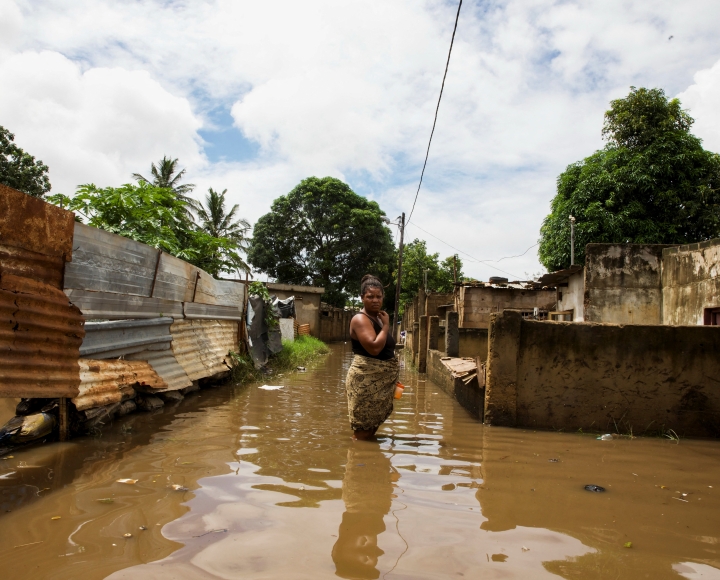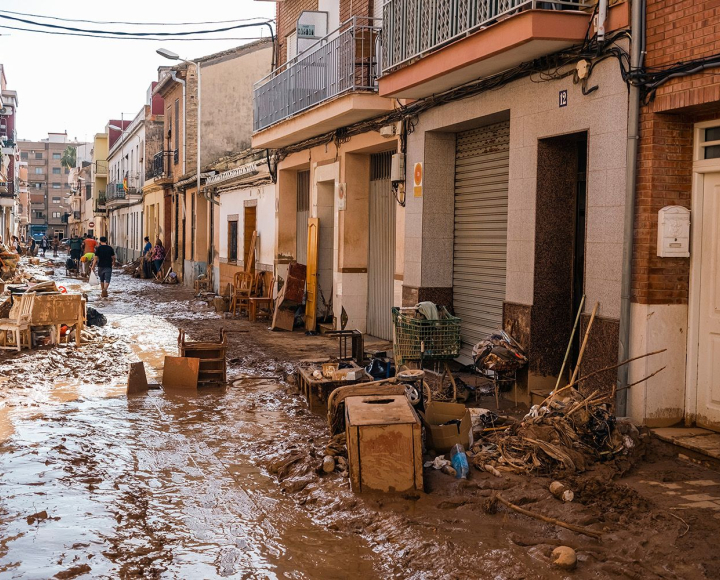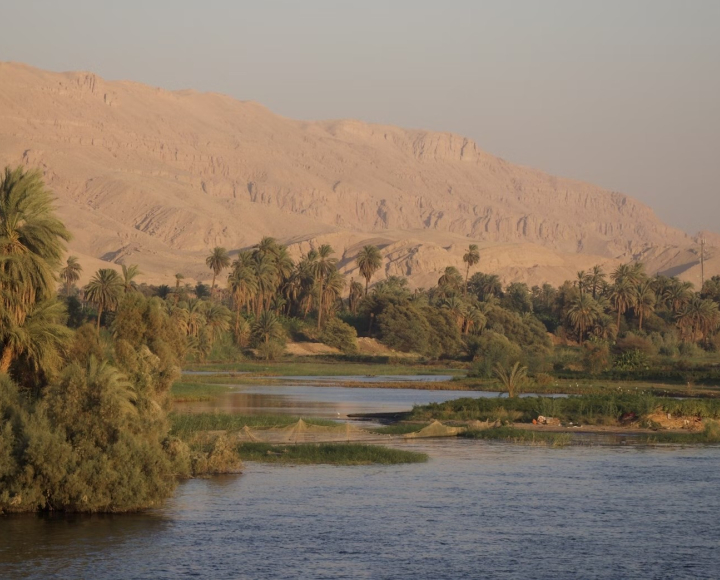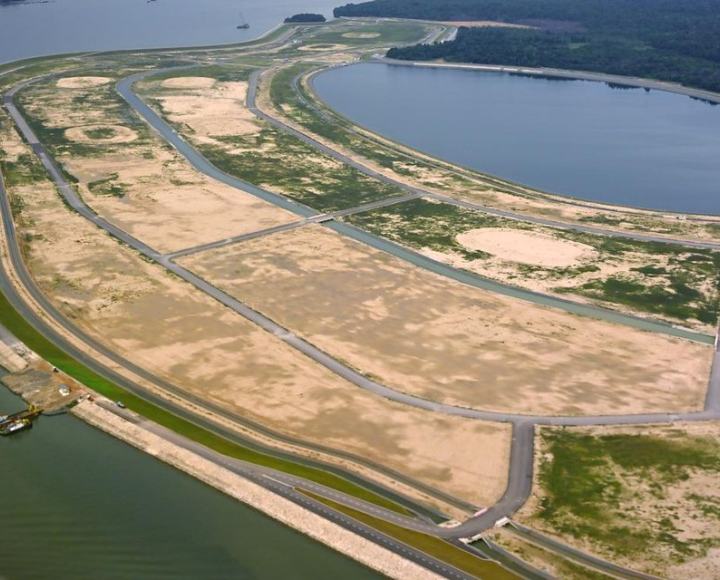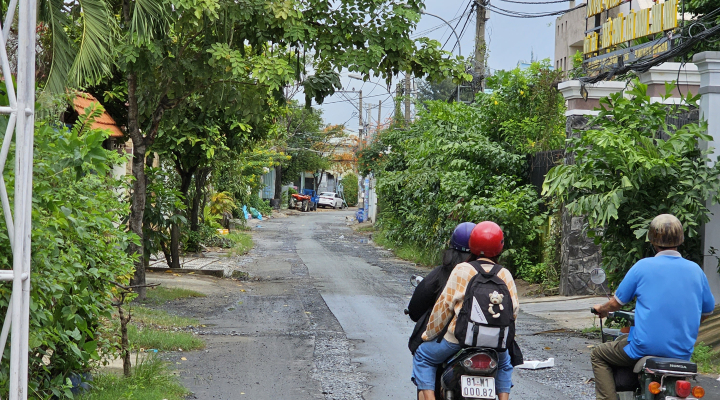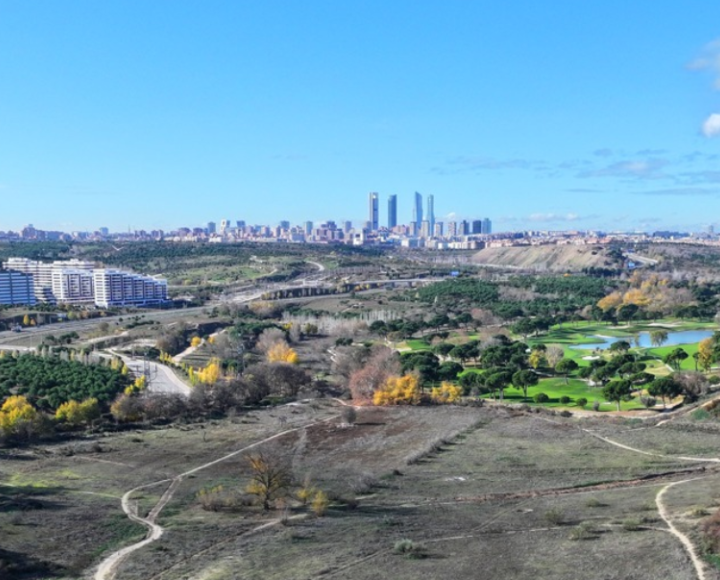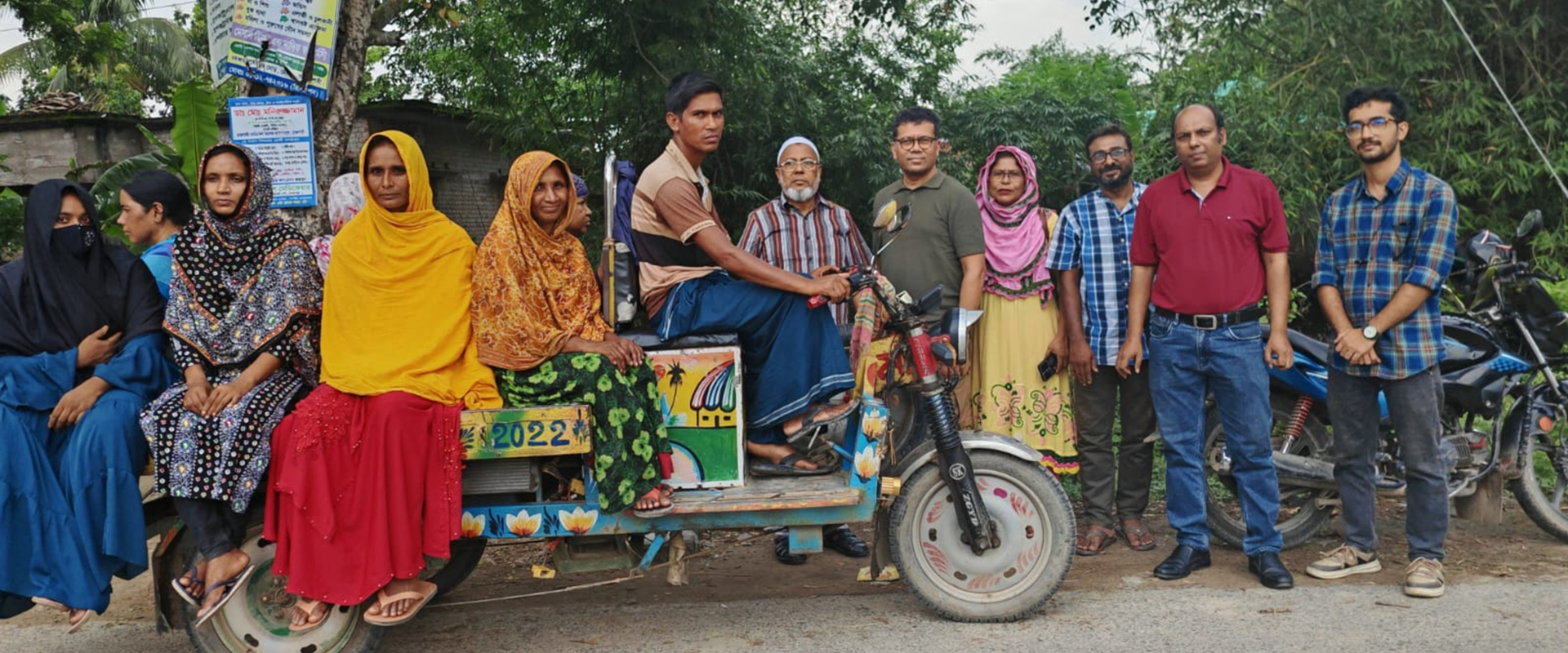
Rural women redesign roads to work with water in Bangladesh
In northwestern Bangladesh, 24 rural women are collaborating with engineers to design climate-resilient roads that also function as water management systems. This initiative, launched by the Global Centre on Adaptation (GCA) in partnership with MetaMeta, Socioconsult and WAVE Foundation, ispart of the World Bank’s Climate Smart Rural Transport Project. It aims to rethink how rural infrastructure is planned and maintained – designing roads that work with water rather than against it. Supported by the Women’s Adaptation Labs, the initiative also places a strong focus on women’s leadership in adaptation.
Green roads that manage water
For too long, roads and water have been at odds. Traditional road construction often ignores natural drainage patterns, blocking water flows, accelerating erosion, and worsening floods. The result is infrastructure that disrupts natural landscapes and becomes increasingly vulnerable to flooding and water damage.
But the Green Roads for Water approach, outlined in the World Bank’s eponymous guidelines, shows infrastructure can serve dual purposes; it can connect communities while managing water across entire landscapes. The concept is straightforward: design roads to capture, store, and channel rainwater through controlled drainage, retention ponds, vegetative buffers, and improved cross-drainage structures. This approach can turn a once destructive force into a resource. It supports groundwater recharge, soil moisture retention, and flood protection – making roads become part of the solution rather than the problem.
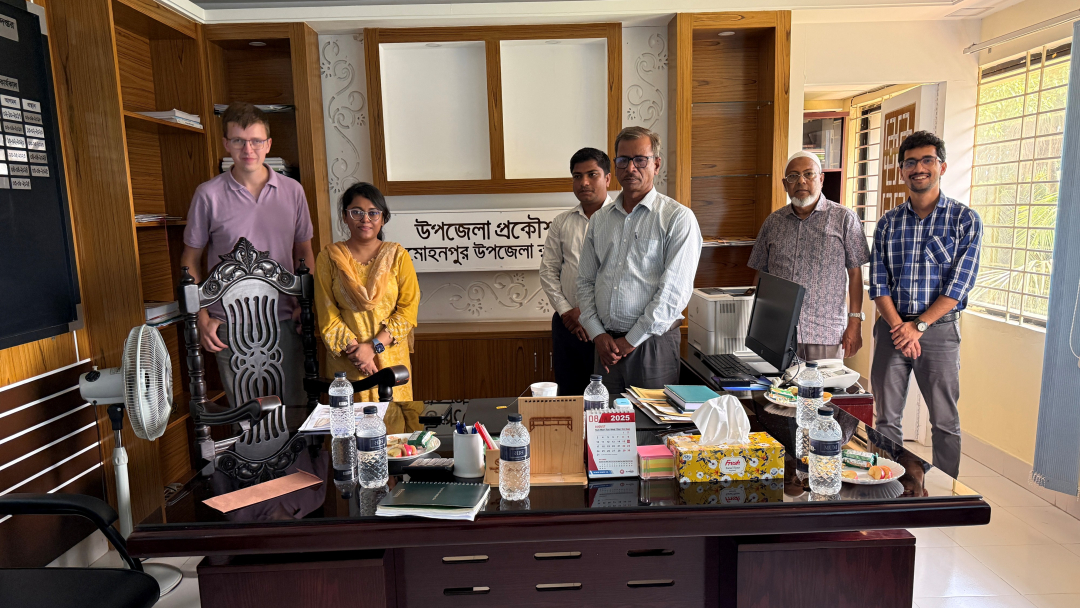
Transforming Infrastructure in Rajshahi
Bangladesh ranks among the world's most climate-vulnerable nations. Rajshahi district exemplifies its challenges. Designated as a climate hotspot in the Bangladesh Delta Plan 2100 – a national adaptation strategy developed in cooperation with the Netherlands – the region swings between extremes: months of intense monsoon flooding followed by severe drought and water scarcity.
Rural roads, connecting millions to markets, schools, and health services, are facing growing risks from climate extremes. As part of the project, two rural roads are being upgraded as pilot sites. The first is the 6.7-kilometre Mohonpur Road, currently an eroded earthen track vulnerable to heavy rainfall and pond overflow. The second is the 9.4-kilometre Godagari Road, a deteriorating brick-paved corridor increasingly damaged by slope erosion. Both suffer from inadequate drainage, unstable shoulders, and design that fights, rather than facilitates natural water movement.
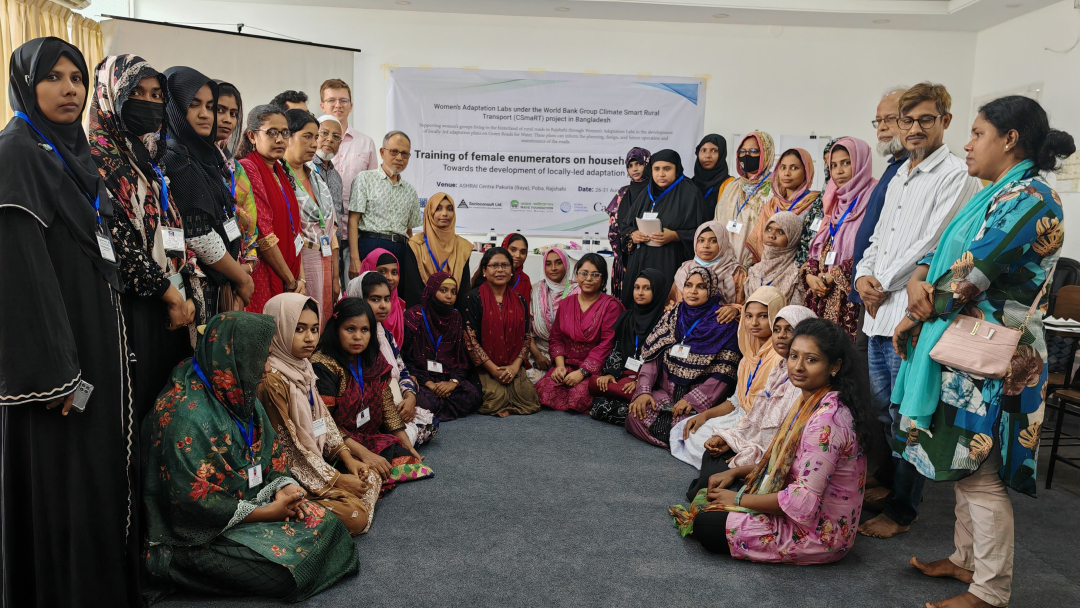

Women at the centre
One of the project's defining features is who's leading the redesign. Women from 17 villages across 15 mouzas (group of villages) – located within five kilometres on both sides of the road corridors – were selected through a rapid vulnerability assessment that examined climate risks, women's mobility, empowerment, and wellbeing.
After receiving intensive training in locally led adaptation, Green Roads for Water approaches, climate communication, and data collection methods, these 24 women mobilisers are now leading the groundwork that will shape the project’s technical choices.
"This training helped me understand how climate change affects our roads and how damaged roads create ripple effects on agriculture, water resources, and our daily lives," said Sharmin Ara, a community mobiliser from Mohonpur. "I also learned that women like us can play a real role in shaping road design, consulting with engineers, and even maintaining the roads."
Between September and mid-October 2025, the female mobilisers are surveying more than 1,100 households through a combination of rapid census and detailed stratified sampling. Through door-to-door visits, they're gathering critical, in-depth information on climate risks and vulnerabilities.
The women are truly co-researchers whose local knowledge about flooding patterns, drainage issues, and water behaviour complements engineering expertise in ways technical assessments alone cannot capture. Their findings will directly shape plans that guide the road redesigns.
This is crucial because women in rural Bangladesh are highly affected by infrastructure failures. Poor road conditions don't just cause inconvenience – they can block access to water sources, markets, and healthcare at critical times. By placing women at the heart of adaptation planning, the project ensures that solutions address real needs rather than assumed ones.
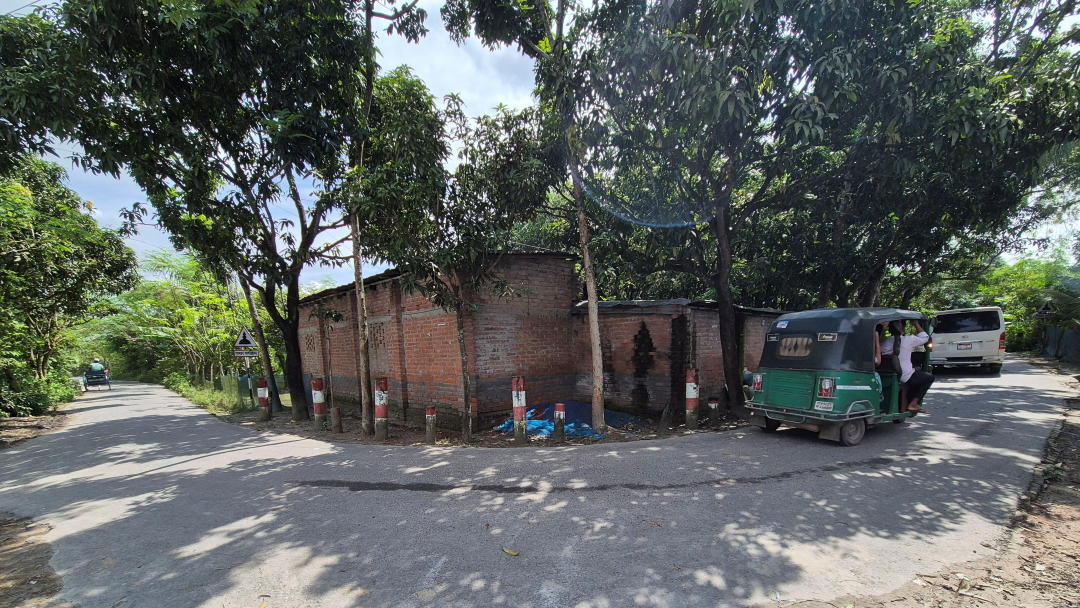

Engineering meets lived experience
Initial assessments identified a range of challenges: cross-drainage points that are too narrow for actual water flows, bridge openings that create bottlenecks during floods, road shoulders that are prone to erosion due to overlooked vegetation patterns, sharp bends that reduce visibility and safety, and competing land uses that leave little room for proper drainage infrastructure.
The Local Government Engineering Department (LGED), responsible for rural road construction and maintenance nationwide, is embracing this participatory model precisely, because it addresses gaps that conventional planning overlooks. By integrating women's observations with hydrological modelling and technical expertise, the project is developing designs that acknowledge how water moves through the landscape, and how communities actually use the landscape.
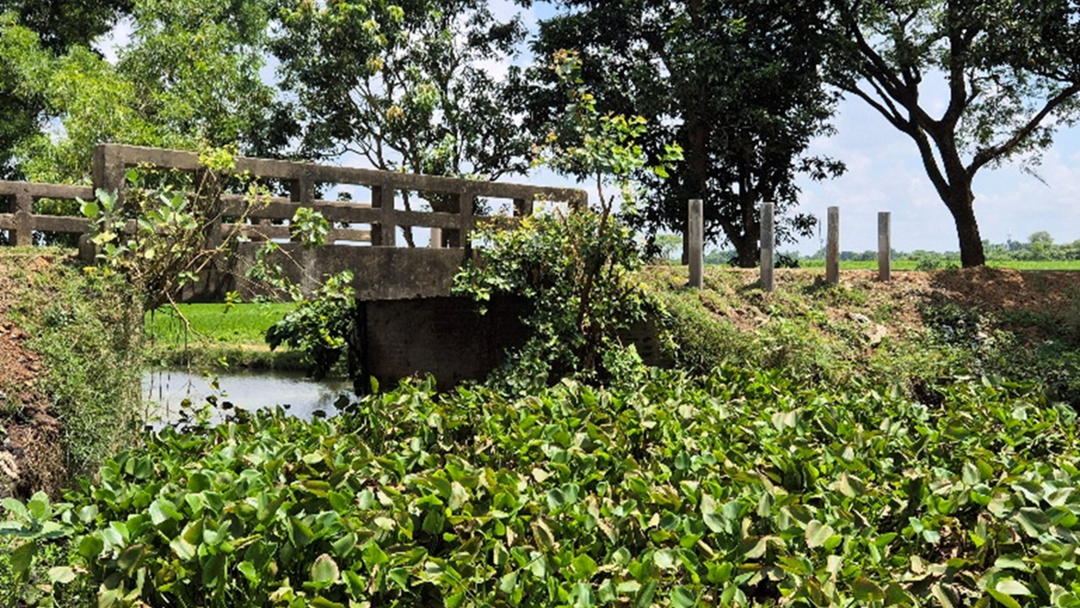

Lessons for international climate adaptation
This initiative reflects broader lessons about effective climate adaptation. Infrastructure doesn't exist in isolation from the environment or the people who depend on it. The Netherlands has long championed multifunctional, water-sensitive infrastructure through integrated planning approaches. Projects like this demonstrate how global principles translate locally when adapted to local conditions and, crucially, led by local communities rather than externally imposed.
The Bangladesh experience shows that meaningful adaptation requires three elements working together: technical innovation that reimagines what infrastructure can do, genuine community participation that values local knowledge as expertise, and recognition that those most affected by climate impacts must be central to solutions.
This article draws on insights from the Global Center on Adaptation’s news feature ‘Women Drive Climate-Resilient Green Roads for Water in Bangladesh’ (23 September 2025).




